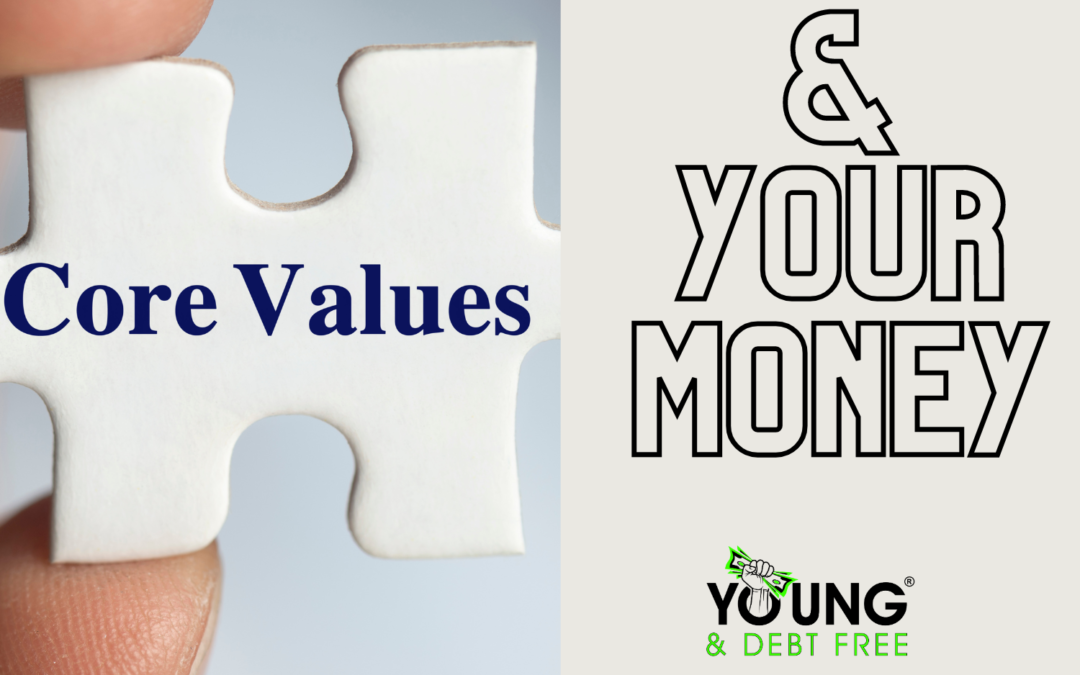Core values play a significant role in shaping various aspects of your life, including how you manage your money. Here’s how core values can relate to your financial decisions:
- Prioritization of Spending:
- Your core values help define what is truly important to you. This, in turn, influences how you allocate your money. For example, if family and health are core values, you may prioritize spending on activities or products that enhance these aspects of your life.
- Budgeting Choices:
- Core values can guide your budgeting decisions. If environmental sustainability is a core value, you might allocate more funds to eco-friendly products or choose to support businesses with environmentally conscious practices.
- Career and Income Choices:
- Your choice of career and the income you strive for can be influenced by your core values. If personal growth or social impact is essential to you, you might be more inclined to pursue a career aligned with these values, even if it doesn’t offer the highest monetary rewards.
- Debt Management:
- Core values can impact your attitude toward debt. If financial security is a core value, you might be more conservative in taking on debt, whereas if experiences or education are valued, you might be more open to certain types of debt that facilitate those goals.
- Long-Term Financial Goals:
- Core values often contribute to the definition of your long-term goals. Whether it’s buying a home, traveling, or supporting charitable causes, your financial goals are likely to align with your core values.
- Philanthropy and Giving:
- If community or social responsibility is a core value, you may be more inclined to allocate a portion of your income to charitable donations or volunteer work.
- Financial Independence:
- Core values can influence your views on financial independence. If autonomy and freedom are essential to you, you might prioritize building an emergency fund or investments that provide a sense of financial security.
- Lifestyle Choices:
- Your core values can impact your lifestyle choices, influencing decisions about where you live, the type of vehicle you drive, and the activities you engage in—all of which have financial implications.
Understanding and aligning your financial decisions with your core values can lead to a more fulfilling and purpose-driven financial life. It’s essential to reflect on your values and consider how they shape your relationship with money and the financial choices you make.

